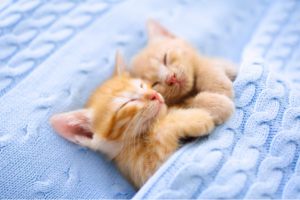“Sleep is the Swiss army knife of health.” – Matthew Walker
Afternoon Drag: Don’t Fight It! Take a Nap!
It happens like clockwork most days, says Dr. Eifrig. Around 3:30 in the afternoon, you get sleepy. Your brain starts to work a little slower. Your eyelids feel heavy and dare you to close them.
“There are two main things going on that bring about this midday slump,” he explains. “The first is a post-lunch production of insulin. Insulin is secreted by the pancreas to take the sugars from the food you just ate out of your bloodstream and move it into our cells, where it becomes glycogen. The release of insulin also triggers the amino acid tryptophan to travel to your brain and start our second mechanism of action: the production of serotonin and melatonin. The presence of these two hormones make you feel calm and sleepy.”
Researchers have found, for example, that afternoon naps improve your mental agility.
A recent study in China observed 2214 people aged 60 and older…. The participants were put into one of two groups: those who napped regularly and those who did not. All of the participants were then given three cognitive assessments: the Montreal Cognitive Assessment, the Mini-Mental State Examination, and the Neuropsychological Test Battery.
The researchers found that those who regularly napped significantly outperformed the other participants on tests of cognitive function. Statistically significant differences were observed in the areas of orientation, language function, digit span (short-term memory performance using numbers – like remembering a phone number), and language fluency.
Why does napping help your brain function?
“There are two sides, or hemispheres, of our brain,” says Dr. Eifrig. “The right brain controls the left side of the body and performs tasks that have to do with creativity. The left brain controls the right side of the body and performs tasks that have to do with logic.
“When we nap, the right side of our brain remains active while the left side sleeps. It is thought that the right side of the brain uses this time to do some housekeeping…. It clears your temporary memory storage by pushing information into your long-term memory.
“When you sleep at night, your brain stores memories, specifically during periods of slow-wave sleep. Slow-wave sleep (also called delta-wave sleep) occurs in the third stage of non-rapid eye movement sleep, just before rapid eye movement begins (which is when we dream). This third stage of non-rapid eye movement sleep is considered critical for restorative sleep when the body is able to recover and grow.”
Studies have also suggested that napping can have positive effects on your immune system.
“This,” says Dr. Eifrig, “is because napping helps to regulate the body’s response to inflammation through the release of cytokines. Cytokines help our cells to communicate with each other to repair areas of the body that are experiencing inflammation, infection, or trauma.”
So don’t fight this very natural inclination to doze off, he says. Science tells us that what we should do when we feel like we need a nap is… take a nap.
Well… I’m happy to take my daily naps when I get them. But I’m wondering: So many things in life are fractal. Maybe nap times are, too. When I’m 75, will I need two naps? And three at 80? Hell, by 80 I’ll be retired. I won’t worry about that now.

 MarkFord
MarkFord